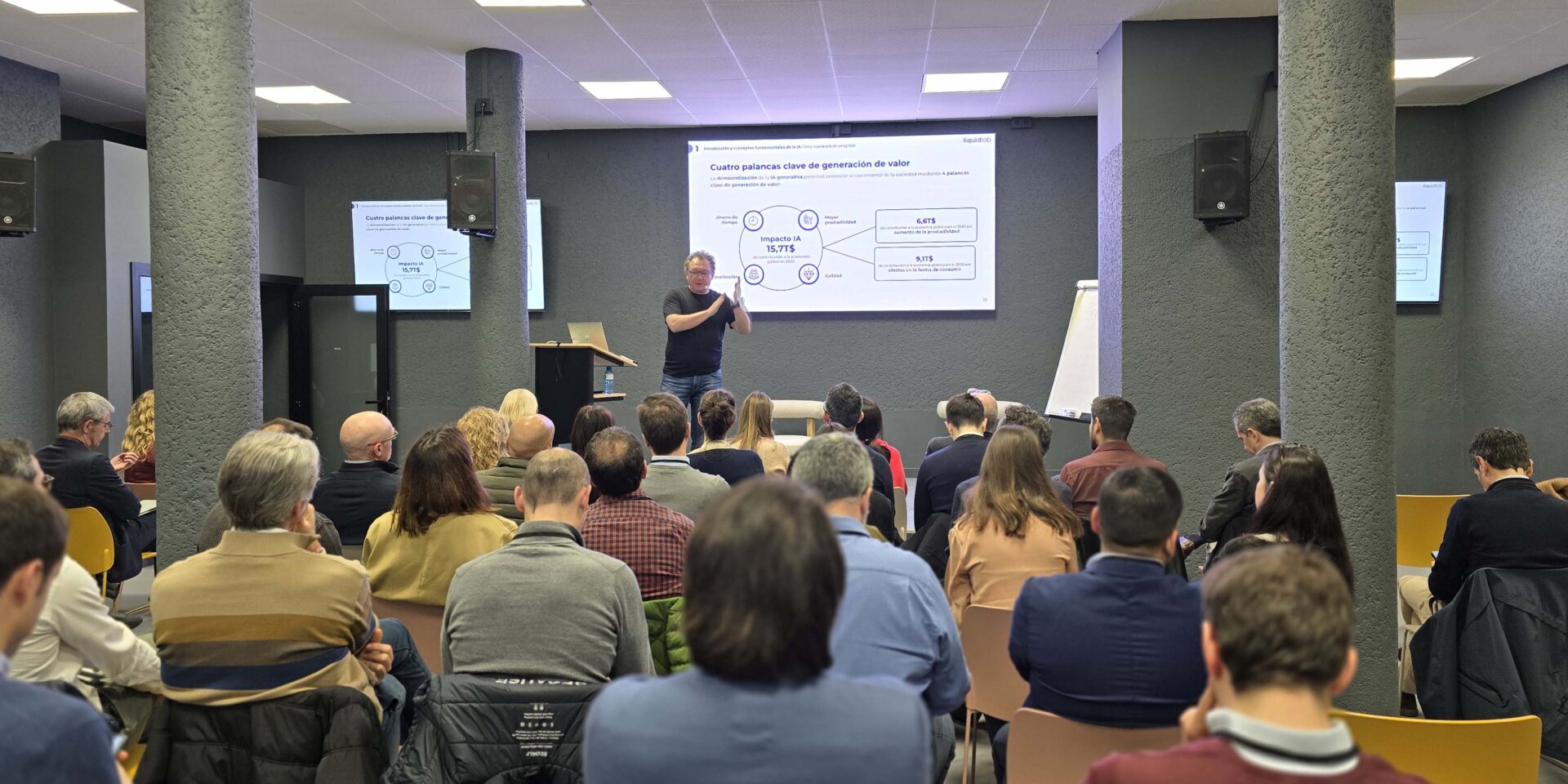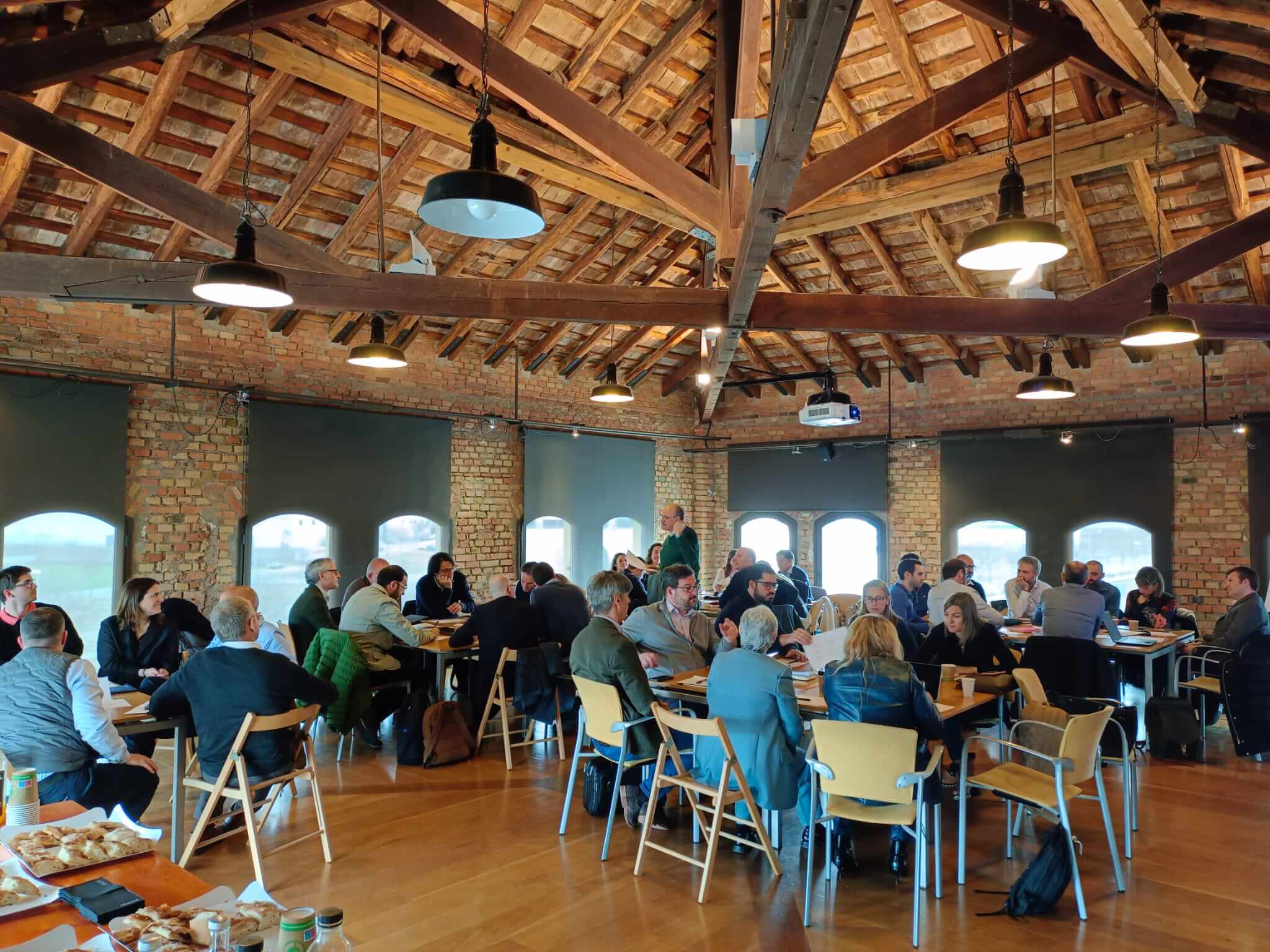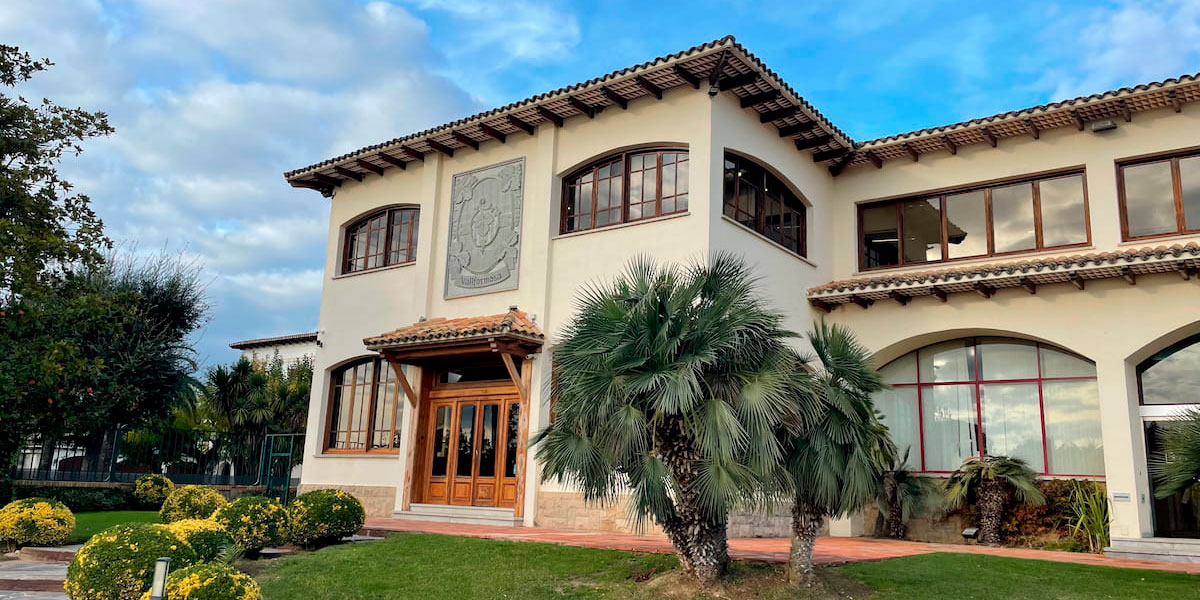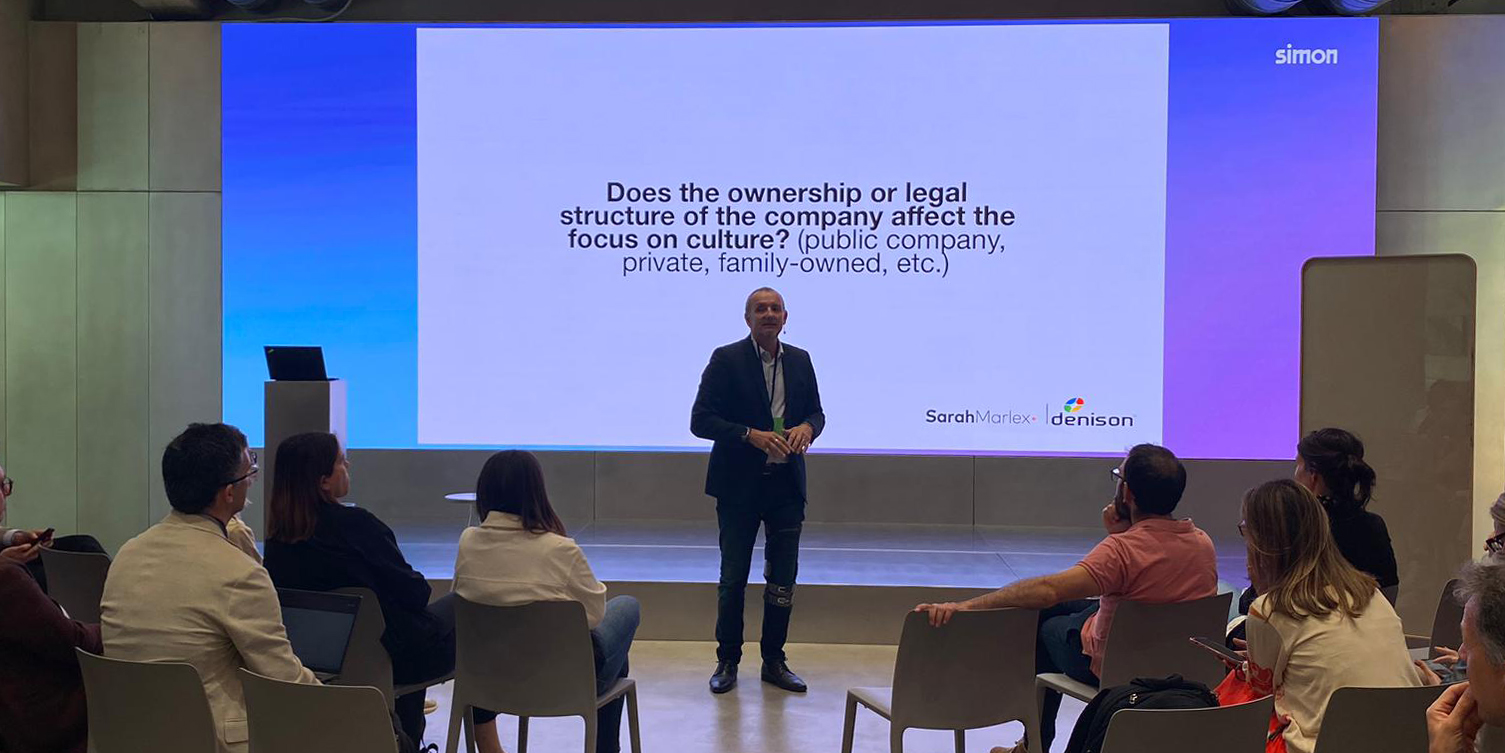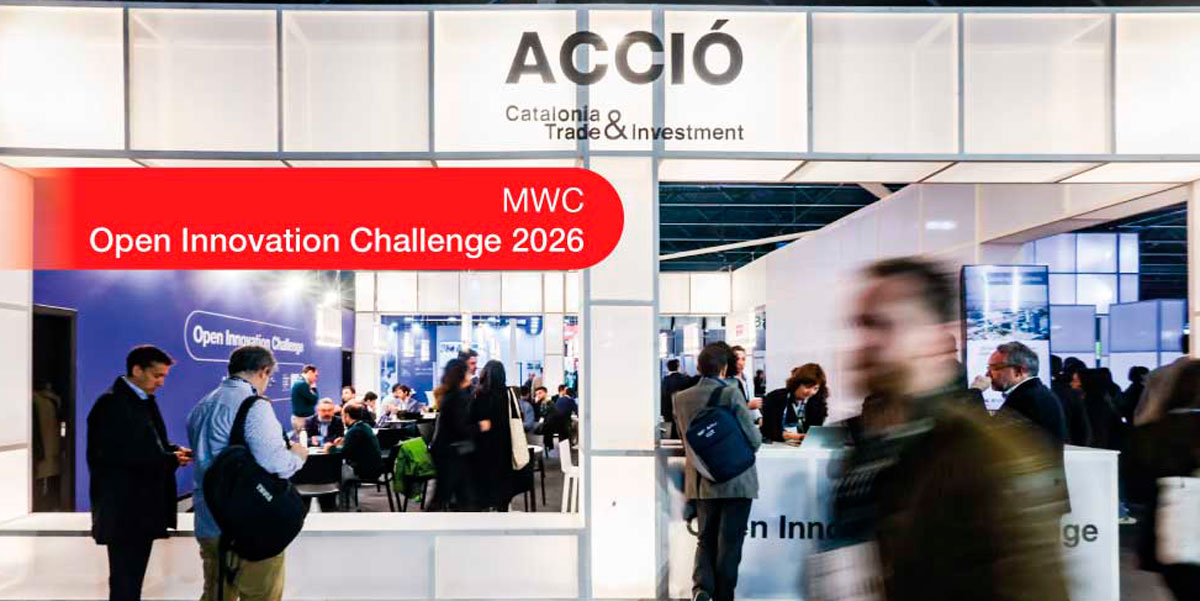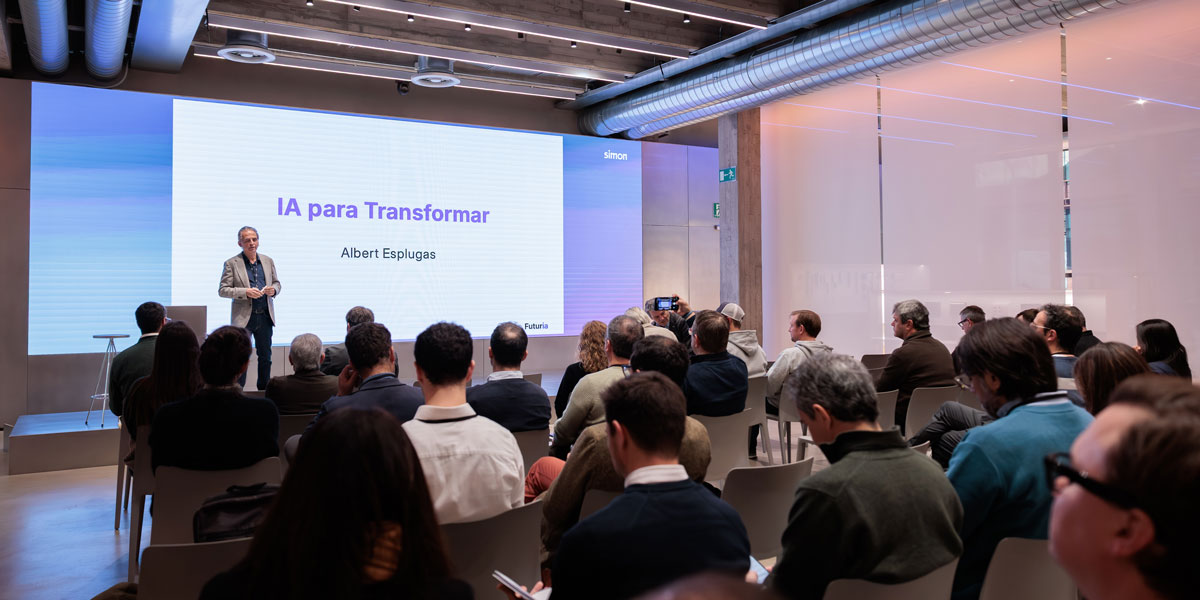Innovation in Humanistic Management: INDPULS Meeting at SWITCH, the New Global Corporate Headquarters of SIMON
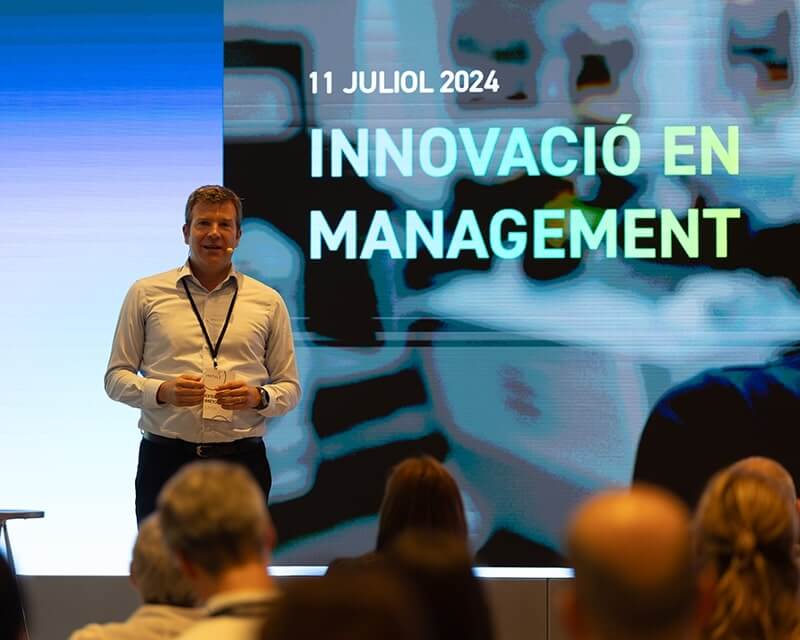

The partners of INDPULS had the privilege of visiting SIMON’s new global corporate headquarters in Barcelona, SIMON SWITCH. This meeting on Innovation in Management featured Xavier Marcet, who spoke about people-centered Innovation in Management. We also had the opportunity to learn firsthand about the cases of Simon and Ferrer.
SWITCH: SIMON’s New Global Corporate Headquarters in Barcelona
Simon is a renowned multinational company leading in designing, manufacturing, and commercializing electrical materials, characterized by its commitment to business diversification. This ranges from electrical mechanisms and control and lighting systems to electric vehicle charging systems. The company has nearly 4,000 employees and exports to 120 countries from its 10 factories. In its 108-year history, Simon’s success lies in its strong commitment to innovation and its dedication to the environment. Additionally, it has adopted a strategy of constant digital transformation in both its traditional business line and the development of new products.
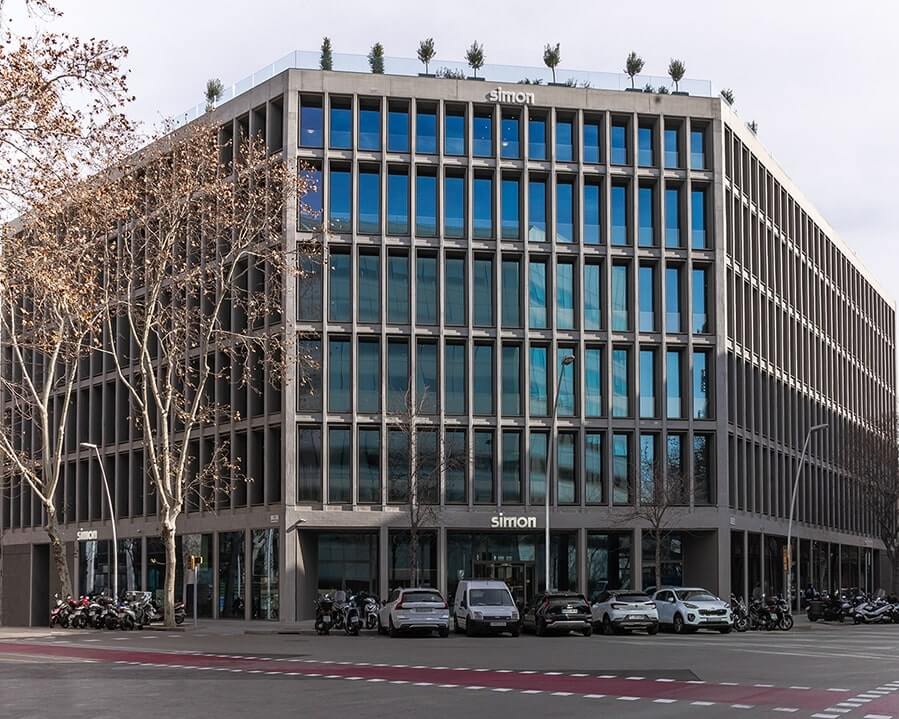
Recently, Simon decided to return to its roots by transforming its old factory in Poblenou into the new global corporate headquarters in Barcelona, named SWITCH. The concept behind SWITCH is to build an intelligent building that is energy-efficient and enhances the quality of life for the people who work in or visit it. SWITCH stands for Simon, Worldwide, Innovation, Talent, Community, and Hub.
Five Macro Trends in the Sector and Their Lessons by Esteban Brecha

The day began with Esteban Brecha, CEO of Simon, presenting the company’s history and evolution, especially marked over the past 30 years by professionalization, diversification, internationalization, and the real estate crisis in Spain. Some of the lessons from this period include the importance of having a multidisciplinary team for each type of client, having people who are collaborative and generous, financial prudence, clear and simple models, and the difficulty of innovating without some idle resources.
Furthermore, Esteban Brecha revealed the five macro trends currently shaping the sector and the key lessons implemented at Simon:
- Social Polarization: In response to this reality, it is crucial to increase the company’s speed and agility in launching new products that meet emerging needs.
- More Concentrated Distribution: It is imperative to preserve and enhance the attributes that distinguish us, ensuring a unique and differentiated offer.
- Labor Shortage in Construction: The lack of qualified personnel is a significant obstacle to implementing innovations. It is vital to invest in personnel training and digitalization to overcome this barrier.
- Climate Urgency: It is essential to free up time to observe and anticipate changes, adapting the strategy to minimize environmental impact.
- Regionalization vs. Globalization: Choosing regional autonomy allows for a more adapted and efficient response to local needs, strengthening the connection with each market.
The SWITCH Project and Its Drive for Cultural Change by Emili Túnica, Global People & Culture Chief Officer of Simon
Due to a rapid process of internationalization and presence in 120 countries, it has been necessary to review and work on the company’s purpose and values to ensure a common identity and fundamental pillars in all the countries where the company operates. The entire organization has been involved in this process.
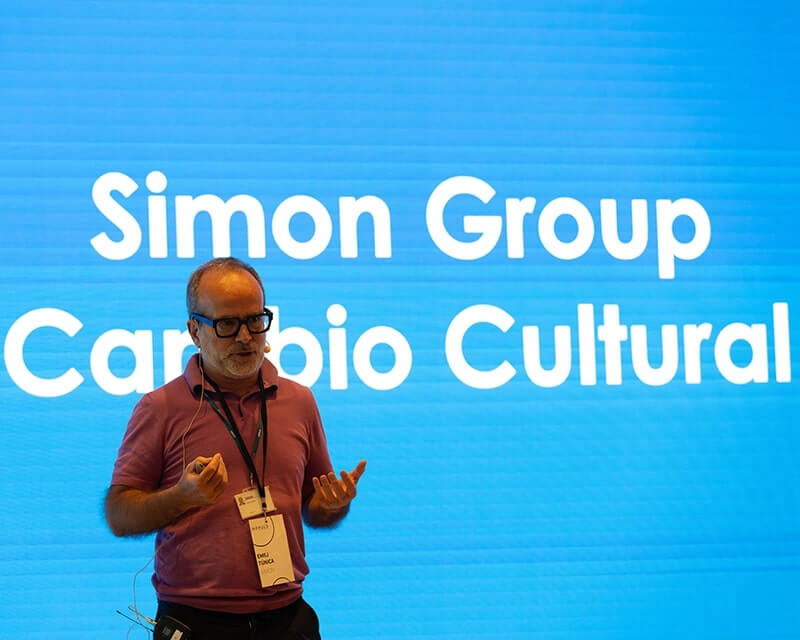
The result is SimonToBe, a document represented in an infographic that captures the company’s purpose, values, vision, activities, and transformation levers. Thanks to this approach, Simon’s employees, regardless of where they are, share a common vision and objectives that strengthen the company’s identity.
“The key to transformation is involving people. They must make it their own. ” – Emili Túnica explains that any transformation goes through three phases: listening, believing, and living it. At Simon, 40% of the employees are already in this third phase.
Innovation in Management: Towards a European Management by Xavier Marcet, President of Lead to Change

Innovation in management is essential to face the major challenges of companies. These major challenges are consistency, evolving with our clients, uniqueness, and leaders and their teams being capable of reaching another level. Xavier Marcet, president of Lead to Change and partner of INDPULS, shared the keys to maintaining relevance in such a competitive environment.
The goal of management is to achieve profitable uniqueness in a constantly changing world. The difference between large corporations and startups lies in this: while startups are still searching for that uniqueness, corporations must ensure they do not lose it. This approach should not simply be an option but an imperative necessity to survive and thrive in the current business environment.
“It is vital to evolve with customers; if you don’t adapt to the future they expect, others will do it for you” – Xavier Marcet.
The differentiation will come from having people who think, the thought workers. Thinking is the key element for innovation in management.
The major challenges that require innovation in management are:
- De-bureaucratization of companies,
- Balancing productivity with highly favorable working conditions,
- Balancing corporate value contribution with social regeneration,
- The new organization of work and organizational culture.
Purpose-Driven Organizations: The Ferrer Case by Mario Rovirosa, CEO of Ferrer
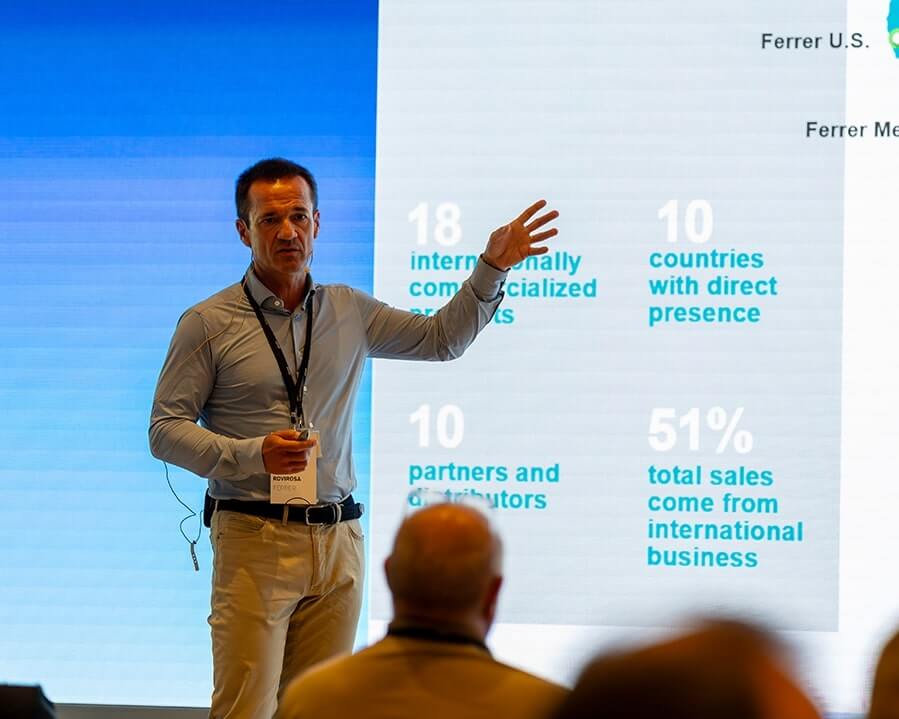
Ferrer is a company that has been seeking to do things differently for years, working on initiatives that return much of their profits to society and direct them where they are truly needed. Mario Rovirosa, CEO of the company, shared how Ferrer integrates sustainability into the company’s purpose, structuring its activity around three main axes:
- Great People: Today’s talent seeks the freedom to choose both the company they work for and the conditions under which they do so. Ferrer is committed to fostering talent growth within the company through a flat management model that facilitates decision-making.
- Liveable Planet: Ferrer understands the importance of contributing to the planet’s sustainability. Therefore, it invests in various initiatives that promote sustainability, such as creating urban gardens.
- Collective Action: The company firmly believes in collective action, as evidenced by initiatives like offering scholarships for music education for children, balanced meal programs for needy families, and dedicating more than 50% of its profits to social and environmental projects.
Mario Rovirosa highlighted the philosophy of Sergi Ferrer-Salat, president of Ferrer: “It’s not philanthropy; it’s an obligation we have for the people who need it due to the profound injustice of having been born where we were born.”
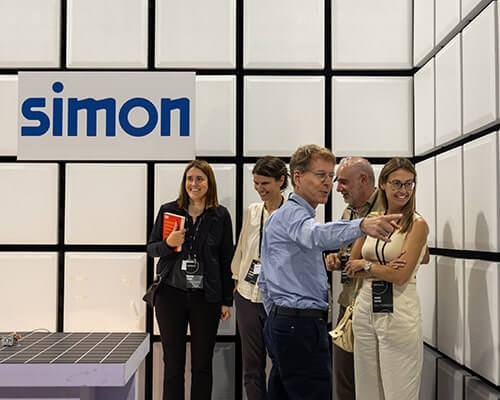
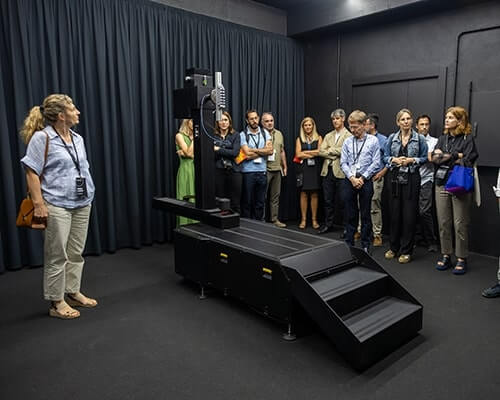
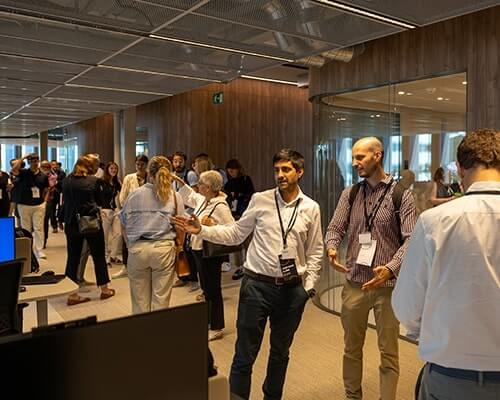
Finally, we concluded the day by visiting the SIMON SWITCH facilities, where we explored spaces such as the Photometry Laboratory, which controls the quality of light emitted by the luminaires, and the EM Room, a Faraday cage that isolates products from electromagnetic interference and tests their behavior against electromagnetic impulses.
Many thanks to the entire Simon team for hosting us.
